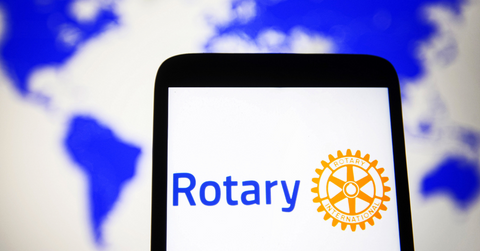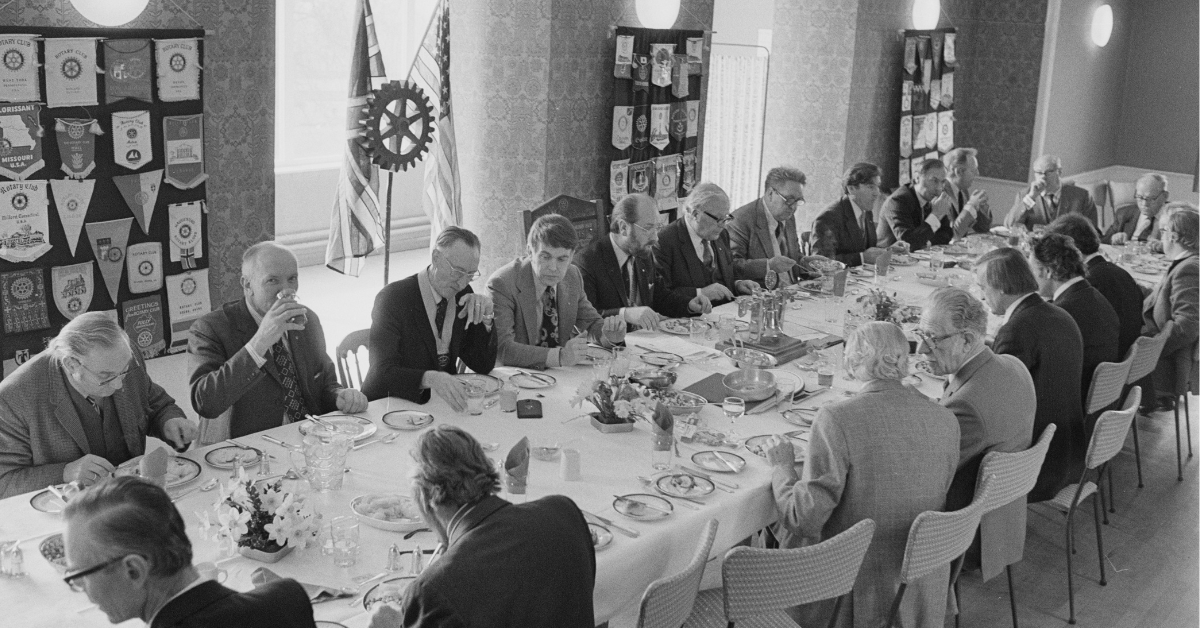The Good, the Bad, and the Ugly of Rotary Clubs — Everything You Should Know
Rotary Clubs aren't just for your grandparents anymore.
Published May 17 2024, 3:27 p.m. ET

If hearing someone say the words "Rotary Club" automatically brings to mind black-and-white images from days gone by when Rotarians (the name for a member of the club) would gather to commit to acts of service, you're not alone. And while that image endures for many of us thanks to television and movies, the reality is that the Rotary Club has changed in a lot of ways over the years.
Whether all of those ways are for the better will likely depend on who you ask and what they know about the non-political and non-denominational organization and its mission. Continue reading to learn more, including whether or not the Rotary Club is considered bad by today's standards.

What is the Rotary Club?
The Rotary Club was established in 1905 by a group of friends who met in downtown Chicago to talk about the news of the day while trying to develop strong friendships. While the initial group of men established the club as a way for people from different backgrounds to come together and learn from one another, the club's mission changed over the years to become one of service, where members focused their efforts on humanitarian projects, according to the club's website.
As for its unusual name, the club was named after the rotating meeting schedule that saw members going to a new meeting spot each week. Despite not having a set location to gather, the club picked up steam, and by 1912, it went international after establishing a location in Winnipeg. Thus, the Rotary Club adopted a new moniker: the International Association of Rotary Clubs. Things moved quickly after that, and more clubs were established worldwide.
While each group focused on different acts of service — including trying to help roll out the Polio vaccine in 1985 with the launching of PolioPlus, something the organization says helped get shots into the arms of 2.5 billion children over the years — their motto continued to follow its original roots of "service above self" across all locations.
Why do some people think the Rotary Club is bad?
Like any organization established in a time when not all people were treated equally, the Rotary Club has been involved in some exclusionary practices over the years. For example, the club was a men-only organization until the U.S. Supreme Court ruled that they had to open the membership to women in 1987.
In addition to their own membership failings, the Rotary Club also gets a bad rap because of the reputation of similar clubs like the Free Masons, who conspiracy theorists accuse of worshipping the occult and controlling the world by inserting members into powerful positions.
The Rotary Club has continued to put humanitarian efforts front and center.
The modern version of the club does resemble the original group in many ways, including in the decision to help communities around the globe by putting a focus on protecting the planet. In the 1990s, they rolled out the Preserve Planet Earth program, which set its sights on preserving flora and fauna, among other things.
Since then, the program has evolved with the changing times, and in 2020, Rotarians updated their initiative to include protecting the environment from the climate crisis.
When faced with all of this information, it's hard to make a snap judgement about whether the club is inherently good or bad, especially when there are factions that could be either. That being said, it's likely that its founder would be proud of the way it looks today.